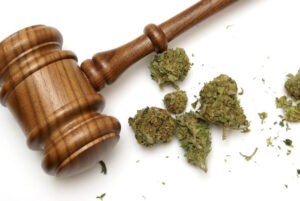How to Get the Medical Marijuana in Florida: The Process
Florida passed Amendment 2, also known as Florida’s Medical Marijuana Initiative, on November 8, 2016. It passed with 71% of voters approving the bill. However, implementing the law has been a time-consuming process.
Today, the legislature is still altering many aspects of the new law, including how marijuana will be dispensed and grown. As a
Jacksonville criminal defense attorney, James Davis is keeping a watchful eye on the legislation as it develops.
For those suffering from chronic illnesses that medicinal marijuana may help, understanding the process of obtaining the drug legally is beneficial.
Becoming a Medical Marijuana Patient in Florida
While lawmakers are still working out many details of the bill, several requirements are certain. Patients must be diagnosed by a doctor as having a debilitating medical condition. Only specific ailments qualify for treatments, including:
- Cancer
- Epilepsy
- Seizures
- HIV/AIDS
- Glaucoma
- Crohn’s Disease
- Chronic Muscle Spasms
- Parkinson’s Disease
- Multiple Sclerosis
- Lou Gehrig’s Disease (ALS)
- Post-Traumatic Stress Disorder (PTSD)
Other severe and chronic conditions may qualify as well. Approximately 300 physicians in the state can currently prescribe medical marijuana. These doctors can evaluate your condition and determine if the benefits of a marijuana prescription outweigh the risks in your particular situation.
Steps to Becoming a Patient
- Doctor’s Diagnosis: Patients must be diagnosed with a qualifying medical condition by a physician who is licensed to prescribe medical marijuana. The physician must document that other treatment methods have been attempted and were not effective. This ensures that medical marijuana is used as a last resort.
- Physician-Patient Relationship: The patient must be under the prescribing doctor’s care for at least three months before a recommendation for medical marijuana can be made. This period allows the physician to explore other treatments and confirm that medical marijuana is appropriate.
- Proof of Residency: Patients must be Florida residents and provide proof of residency, such as a Florida driver’s license, utility bill, or bank statement. This ensures that the program is only used by those living in the state.
- Obtaining a Medical Marijuana ID Card: Once a patient has a recommendation from a doctor and proof of residency, they can apply for a state-issued medical marijuana ID card. These ID cards were first issued in September 2017 and are essential for legal access to medical marijuana.
Additional Requirements and Considerations
- Age Restrictions: Patients must be at least 18 years old. Those under 18 are not eligible to become medical marijuana patients under the new amendment.
- Chronic Pain: Treatment of chronic pain alone does not currently qualify for a medical marijuana prescription. The condition must be one of the specified debilitating conditions.
Legal Guidance and Compliance
Navigating the medical marijuana application process can be complex, and ensuring compliance with the new rules and regulations is crucial. Consulting with a knowledgeable defense attorney in Jacksonville, Florida, can provide valuable guidance and help avoid any inadvertent violations.
An attorney can also assist in understanding the evolving legal landscape and securing the necessary documentation.
Legislative Developments and Future Changes
The implementation of Amendment 2 continues to evolve as lawmakers refine the regulations. This ongoing process includes determining the specifics of marijuana cultivation and distribution, as well as adjusting the list of qualifying conditions and prescribing practices.
Staying informed about these changes is essential for patients and medical professionals alike.

Understanding how to legally obtain medical marijuana in Florida involves navigating a detailed process that includes physician evaluation, proof of residency, and compliance with state regulations. For individuals with qualifying medical conditions, medical marijuana can offer significant relief when other treatments have failed.
Consulting with a criminal defense attorney can provide clarity and assistance in navigating this process, ensuring that patients receive their medication legally and without complications.
To ensure that you are not inadvertently violating any of the new rules and regulations, you may want to speak to a
defense attorney in Jacksonville, Florida. Call
James Davis Defence on 904-358-0420 for more information. – Follow us on
Facebook!
Sources
 Understanding how to legally obtain medical marijuana in Florida involves navigating a detailed process that includes physician evaluation, proof of residency, and compliance with state regulations. For individuals with qualifying medical conditions, medical marijuana can offer significant relief when other treatments have failed.
Consulting with a criminal defense attorney can provide clarity and assistance in navigating this process, ensuring that patients receive their medication legally and without complications.
To ensure that you are not inadvertently violating any of the new rules and regulations, you may want to speak to a defense attorney in Jacksonville, Florida. Call James Davis Defence on 904-358-0420 for more information. – Follow us on Facebook!
Sources
Understanding how to legally obtain medical marijuana in Florida involves navigating a detailed process that includes physician evaluation, proof of residency, and compliance with state regulations. For individuals with qualifying medical conditions, medical marijuana can offer significant relief when other treatments have failed.
Consulting with a criminal defense attorney can provide clarity and assistance in navigating this process, ensuring that patients receive their medication legally and without complications.
To ensure that you are not inadvertently violating any of the new rules and regulations, you may want to speak to a defense attorney in Jacksonville, Florida. Call James Davis Defence on 904-358-0420 for more information. – Follow us on Facebook!
Sources

